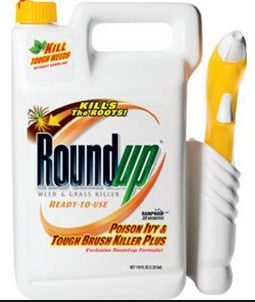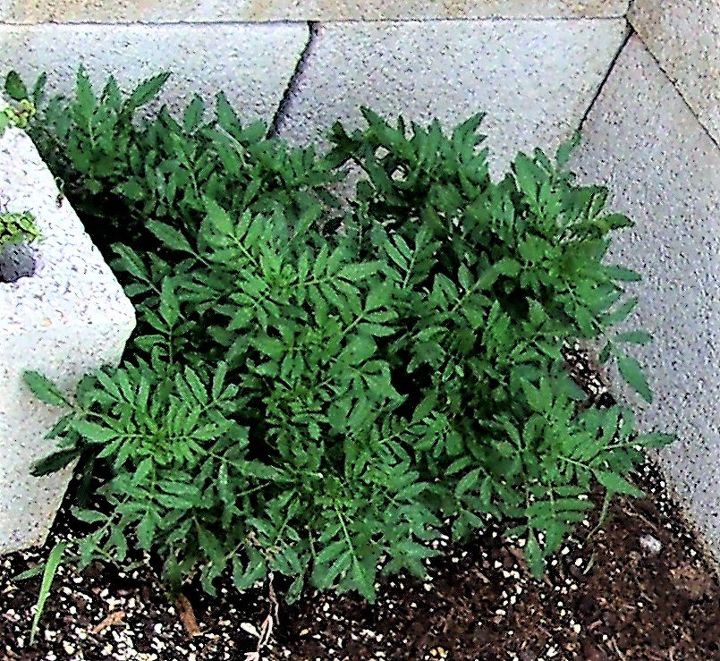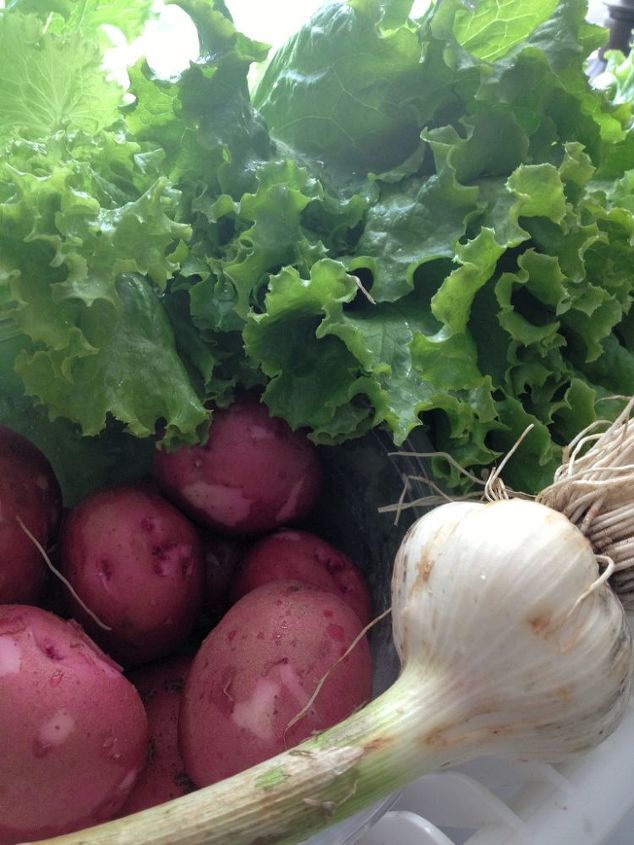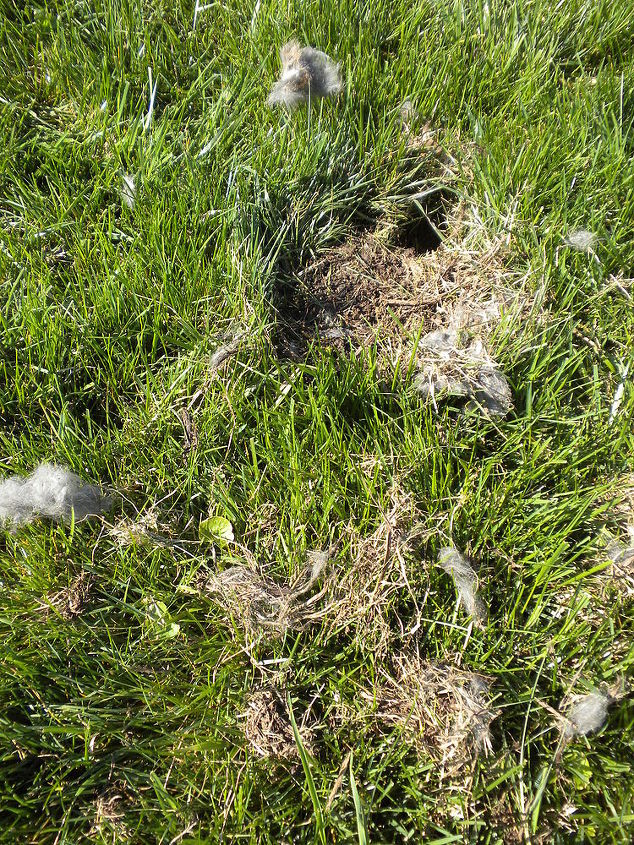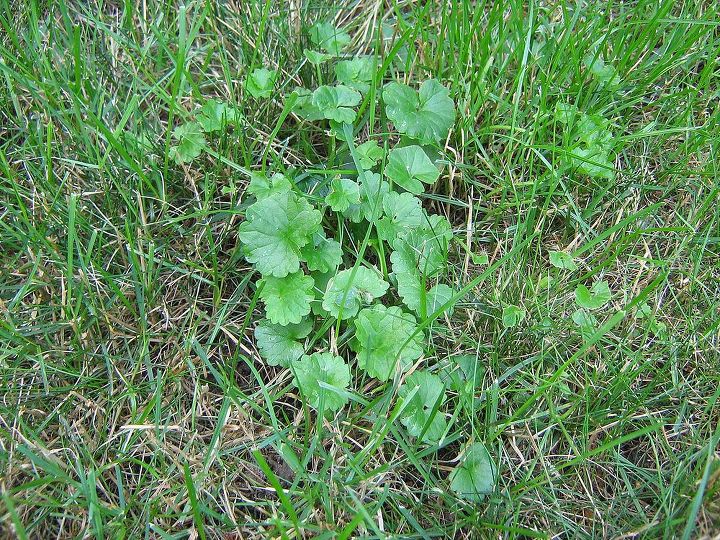Not too long ago I used Roundup on some poison ivy and then also on

-
Hi, check out the cheaper brands and just check the ingredients. If they are the same - I think Roundup is basically glyphosate and it will tell you on the bottle. Go for the cheaper brand. The reason it is cheaper is that Roundup may have been developed by a company and been on patent when it was developed for X number of years. When it goes off patent, any other company can make the same stuff. They usually make it cheaper and don't pay big advertising money. Sometimes the same company will have a cheaper generic brand name (but it is the same company that makes the original that was patented and now off patent). They do that to cover all spectrums of the market and to increase their sales. The cheaper one will be the no frills packaging but essentially the same stuff in the bottle. If you need something extra strong - go for the Glyphosate 360. This is used undiluted - applied neat - to anything that is within the range that Glyphosate can kill but is the full strength version of it. Hope this make sense. Always use the right product for the task, for example blackberry will need something else to do a knock out job and keep the stuff away specific to blackberry - always read the bottle!
 Carole
on Aug 12, 2013
Helpful Reply
Carole
on Aug 12, 2013
Helpful Reply -
-
percentage of product is the key.that is why I buy it in 2 and a half gallon container and mix it with water my self.I dictate the percentage of raw product
 Lawn Pro
on Aug 13, 2013
Helpful Reply
Lawn Pro
on Aug 13, 2013
Helpful Reply -
-
Advertising is the undoubtedly the main factor. Buy by the percentage of active ingredient, which, in this case, is indeed glyphosate, and not by the name on the label.
 Douglas Hunt
on Aug 13, 2013
Helpful Reply
Douglas Hunt
on Aug 13, 2013
Helpful Reply -
-
Louise! Instead of Roundup try using straight White Vinegar on that poison Ivy and Liriope! Just as an experiment I tried it on an invasive weed in my garden that I've been battling to get rid of for years, with no success and it killed the plant in less than 24 hours. I also used Roundup the same day on the same plant and they are still alive!
 Sheri N
on Aug 13, 2013
Helpful Reply
Sheri N
on Aug 13, 2013
Helpful Reply- See 2 previous
-
-
Main Page Miriam? Can you send me the link?
 Sheri N
on Aug 13, 2013
Helpful Reply
Sheri N
on Aug 13, 2013
Helpful Reply -
-
As @Sheri said... try Vinegar. Roundup is neither biodegradable nor environmentally friendly. In fact Roundup has been linked to a range of health problems and diseases, including Parkinson's, infertility and cancers, according to a scientific study. Some info here: http://earthopensource.org/index.php/4-health-hazards-of-roundup-and-glyphosate. And here's some info about using vinegar you may find helpful http://www.agardenforthehouse.com/2011/06/got-weeds-use-vinegar-not-roundup/.
 Patches
on Aug 14, 2013
Helpful Reply
Patches
on Aug 14, 2013
Helpful Reply -
-
Mix a gallon of vinegar, one cup table salt and a couple teaspoons of dish soap and spray what you want to kill...spray at the sunniest part of the day. Please don't use any more of those other products....they have been found responsible for the lack of bees, frogs and other helpful garden creatures in our gardens.
 Karen McLendon
on Aug 14, 2013
Helpful Reply
Karen McLendon
on Aug 14, 2013
Helpful Reply- See 1 previous
-
-
Hooray for all of your posts against Round Up! We sure don't need any more chemicals in our lives!
 Teri Tripp-Lanciault
on Aug 14, 2013
Helpful Reply
Teri Tripp-Lanciault
on Aug 14, 2013
Helpful Reply -
-
Would love to see you use something besides Roundup. I understand it even kills the worms.
 Ginny B
on Aug 14, 2013
Helpful Reply
Ginny B
on Aug 14, 2013
Helpful Reply -
-
I am so happy to see the recipe that is more bio friendly. I have some liriope that I really would like to keep in a certain area. This will help a lot....and oh, the poison ivy...BAD!!!! And my body really doesn't like that stuff either. Just wonderful to try something that isn't going to hurt our world! Thanks again.
 Diane H
on Aug 14, 2013
Helpful Reply
Diane H
on Aug 14, 2013
Helpful Reply -
-
Neither vinegar, which is high acid, nor salt is good for the soil. If it's in an area where you don't want to grow anything else just use pure nitrogen fertilizer in a very strong concentration & water it in lightly. It will burn the plants & kill them,
 Judy
on Aug 14, 2013
Helpful Reply
Judy
on Aug 14, 2013
Helpful Reply- See 4 previous
-
-
I tried vinegar before on liriope and it did nothing! Also tried it on some weeds and did nothing.
 Louise
on Aug 14, 2013
Helpful Reply
Louise
on Aug 14, 2013
Helpful Reply -
-
It is also been blamed for problems in humans....the vinegar is cheaper. You can also boil some water and carefully pour it on weeds....I am not some enviromentalist or anything but what I have read really scares me...I guess if you wanted more info you could look on line....I have gotten rid of trees using the vinegar and other tough weeds.
 Karen McLendon
on Aug 14, 2013
Helpful Reply
Karen McLendon
on Aug 14, 2013
Helpful Reply -
-
I'm wondering if vinegar will kill the clover that is quite thick around my crocosmia? I tried pulling out the clover by hand but it is so thick!
 Julia
on Aug 14, 2013
Helpful Reply
Julia
on Aug 14, 2013
Helpful Reply -
-
There is no SCIENTIFIC basis for all this hype against RoundUp. I just spent 2 hours reading the Internet. Unscientific studies and unfounded claims repeated over and over by the same pseudo environmental and 'health' groups do not a monster make. And being "blamed" is not the same as proving a link between. I can blame vinegar for my hair falling out, but that doens't make it so.
 Larry Collins
on Aug 15, 2013
Helpful Reply
Larry Collins
on Aug 15, 2013
Helpful Reply- See 3 previous
-
-
By the way @Louise, both RoundUp and Ortho make a weed/brush killer specific to Poison Ivy. You CAN kill Poison Ivy with regular RoundUp but it will require persistent treatment. I know...I've done it. (and I still don't glow in the dark).
 Larry Collins
on Aug 15, 2013
Helpful Reply
Larry Collins
on Aug 15, 2013
Helpful Reply -
-
@LouiseNo, there isn't but I was trying to say I am not an expert just some one who has read a couple of articles...and feels better about not using the products....
 Karen McLendon
on Aug 15, 2013
Helpful Reply
Karen McLendon
on Aug 15, 2013
Helpful Reply -
-
@Teri Tripp-Lanciault We aren't talking about insectides (http://en.wikipedia.org/wiki/Neonicotinoid), we're talking about RoundUp for killing grass and weeds: http://en.wikipedia.org/wiki/RoundUp See, this is a prime example of ignorant hype that gets spread around among the crazies looking to believe it.
 Larry Collins
on Aug 16, 2013
Helpful Reply
Larry Collins
on Aug 16, 2013
Helpful Reply -
-
I am far from ignorant, Larry and I would appreciate your keeping the insults to a minimum. Monsanto is the king of toxic poisons. Weed killers leach. If it kills weeds, it can kill any living thing that ingests it, from the lowly worm, to the bird that eats the worm. If that is ok with you...fine. It is not fine with me. Any toxin that can be done away with in favor of a more natural, non-toxic alternative (be it for insects or weeds) makes much more sense.
 Teri Tripp-Lanciault
on Aug 16, 2013
Helpful Reply
Teri Tripp-Lanciault
on Aug 16, 2013
Helpful Reply -
-
I've had great success spraying salt/vinegar solution on poison ivy....
 Eyesdebo
on Aug 16, 2013
Helpful Reply
Eyesdebo
on Aug 16, 2013
Helpful Reply -
-
Larry may have been a bit harsh, but he has a point. Monsanto (like any large chemical company...and like big drug comanies) markets a wide variety of chemicals, some more toxic than others. Glyphosate, the active ingredient in Round Up, has been broadly attacked by a number of fringe groups, and I can understand why it makes people concerned. Fortunately, it binds to organic matter in the soil and rather rapidly biodegrades. Being a contact herbicide, it only kills plant when it's sprayed on the leaves. Different compounds are toxic to different organisms. I can eat dark chocolate, but my dog shouldn't. Dozens of species of birds enjoy poison ivy berries, but those berries would really mess up a human. Poison to plant isn't necessarily poison to an animal. Glyphosate inhibits plants from taking up moisture through their roots. Birds don't have the same biological processes, so even if a worm has trace amounts of the chemical in it's system, the bird will just poop most of it out. Here's a study by Cornell University-- a pretty well-respected institution: http://pmep.cce.cornell.edu/profiles/extoxnet/dienochlor-glyphosate/glyphosate-ext.html Oh, and as to the question ;) The price difference probably has a lot to do with paying for the advertising-- but just in case, I'd check the % of active ingredient. If it's the same, I'd go with the cheaper option, but it's worth paying a little more for a less-dilute product.
 Jennifer Pospichal
on Aug 17, 2013
Helpful Reply
Jennifer Pospichal
on Aug 17, 2013
Helpful Reply -
-
Thank you @Jennifer Pospical for being the voice of intelligence and reason. @Teri Tripp-Lanciault I stand by my comments. I didn't say you we're stupid I said you were ignorant (uninformed), although it was not directed at you personally but at all of those who rail against RoundUp without knowing the science behind it. Jennifer has explained it well.
 Larry Collins
on Aug 17, 2013
Helpful Reply
Larry Collins
on Aug 17, 2013
Helpful Reply -
-
You can talk all you want about Round-up and all the other chemicals but what about the worms and the bees. You will never sell me on these products.
 Ginny B
on Aug 17, 2013
Helpful Reply
Ginny B
on Aug 17, 2013
Helpful Reply -
-
Poison Ivy can kill people. If my mother, who is highly sensitive to poison ivy, had to come live with me, I would want something more powerful that vinegar and boiling water, because the poison ivy in the tree line around my property has been growing there for years and is very stubborn, even with careful chemical use.
 Honeylamb
on Aug 17, 2013
Helpful Reply
Honeylamb
on Aug 17, 2013
Helpful Reply -
-
The poison ivy round up worked great for us. But your normal weeds stop wasting your money. Use this it works. 1 gallon vinegar, 1/2 table salt& 3- dish dawn. Cost $5 works like a dream. For tall or lots of weeds use water softener salt just put it down& add water 2-3 days they die& just pull. Good luck!
 Jennifer Ickes
on Aug 18, 2013
Helpful Reply
Jennifer Ickes
on Aug 18, 2013
Helpful Reply -
-
What is water softener salt? Where would I find this?
 Louise
on Aug 18, 2013
Helpful Reply
Louise
on Aug 18, 2013
Helpful Reply -
-
Water softener salt is what they use to soften well water. You can get it just about anywhere. Grocery stores or hardware stores. It's about $5 for a 70 lbs bag. I have an acre of yard took me 4 bags. But I noticed all the weeds& everything else along my fence die. My hubby hasn't had to weed eat there all summer. It will kill everything in a few days.
 Jennifer Ickes
on Aug 19, 2013
Helpful Reply
Jennifer Ickes
on Aug 19, 2013
Helpful Reply -
-
Brush-B-Gon is ideal to kill poison oak or ivy climbling trees and winding their way up on strong "ropes"
 Mary Law
on Aug 20, 2013
Helpful Reply
Mary Law
on Aug 20, 2013
Helpful Reply -
Related Discussions
GNATS - How to get rid of them?
Somehow my house and garden got tiny gnats that killed my fuchsia plant and fly everywhere. I have tried ALL the Web recommendations - soap and oil dishes, sand in th... See more
Marigolds growing! Should I pinch the buds?
My marigold plants are growing. I heard that pinching the buds until Autumn will allow them to grow without killing the plant. Is this true?
Growing garlic
Growing our first garlic, should we wait until the leaves are drying out before we pick it? Husband picked first one today along with our first potatoes.
How to keep mice out of your garden?
Hi everyone, I have mice in my garden destroying my vegetables and I have also noticed them in the barn and shed. Please can someone tell me how to prevent them from ... See more
What's the best flower/plant to grow in Texas?
I know that opinions vary, but what's your opinion?!I have great luck w Rosemary plants. Green all year long.
Can someone tell me what kind of animal this was in my yard?
I thought maybe a rabbit was burrowing in my yard, but it's almost dead center of my lawn (not a very smart rabbit). The hole is not very deep, and I replanted it onc... See more
Is Creeping Charlie in your lawn a good thing or a bad thing?
Is there a sure-fire way to get rid of Creeping Charley?
